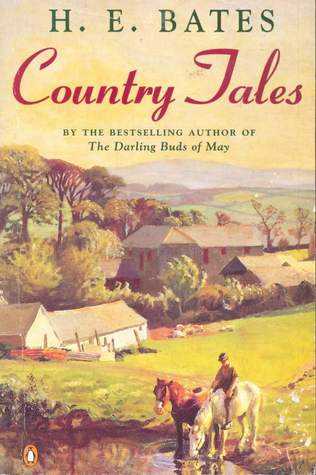
- ID
- a36
- Title
- Country Tales: Collected Short Stories.
- Genre
- Story Collection
- Page Count
- 412
- Publisher
- Jonathan Cape
- Publication Year
- 1940
London: Jonathan Cape, 1940 (July 5).
Identical in contents to Country Tales (Readers' Union edition, 1938) except for the substitution of "The Captain" for "The Palace" due to the lawsuit regarding the appearance of the latter title in 1938.
The volume of thirty stories is arranged chronologically and, with the exception of The Black Boxer, among the stories from each collection the order is identical to that of the original collection, with two stories from Bates's first collection (Day's End and Other Stories, none from his second, two from The Black Boxer Tales, then eight (all but five) from The Woman Who Had Imagination, twelve (all but two) from Cut and Come Again, and six (out of sixteen) from Something Short and Sweet. In the prefatory "The Writer Explains" (attached), Bates states that except for minor proof reading, he has not revised any of the stories "because I feel that once a story is written, printed and published it should have reached, in a sense, a state of finality" and "the author should then resist impulses to tamper with it, to superimpose on it the touches of a maturer experience and technique." He offers frank criticism of his earliest stories ("I was groping my way towards becoming a conscious writer" and "showed a dangerous appetite for sucking the significance out of trivialities"), and discusses his increasing emphasis on character over mood as well as his complete disinterest in plot. Lastly he bemoans the state of short-story publication in England, maintaining that it is "in every way a finer means of expression of our age of unrest, disbelief and distrust than either the novel or poetry."
Bates responded to criticism of the book (when first published in 1938) in a piece called 'Readers, Grow Up!'
The collection prompted evaluations of Bates's work to date. Richard Church writes that "he is the finest artist of his kind writing in English to-day. He is to be classed with Somerset Maugham. D.H. Lawrence, and V.S. Pritchett, three masters in the art of the short story." John Mair comments that Bates's work, "more than that of any other living English writer, approximates in spirit to the sonnet. It is confined in breadth and treatment, it can never be tragedy or epic, but it can, in its way, be perfect." The Times noted Bates's development as an author and commented that "most of the stories have the freshness of experiment."
Note several later editions of this title, a 1974 edition (Bath: Lythway Press) with contents identical to the 1938 edition, and a 1985 edition (London: Robinson Publishing, "Country Classics" series) containing only twenty-six stories including "The Palace," and "The Captain," but lacking "Time," "The Mill," "The Station," "The Kimono," and "Breeze Anstey."
Reviews:
- John O'London's Weekly (July 19, 1940, p. 447. Richard Church, attached)
- The New Statesman and Nation (August 17, 1940, p. 164, 166, John Mair, attached)
- The Spectator (July 26, 1940, p. 102, Janet Adam Smith, attached)
- The Times (July 6, 1940, p. 7, attached)
- Times Literary Supplement (July 6, 1940, p. 329, M. Willson Disher, attached)
Contents: The Easter Blessing; Never; The Black Boxer; Death in Spring; The Story Without an End; The Gleaner; The Woman Who Had Imagination; Time; The Waterfall; Innocence; Sally Go Round the Moon; The Brothers; Beauty's Daughters; Cut and Come Again; The Mill; Waiting Room; Little Fish; The Station; The House with the Apricot; The Plough; Jonah and Bruno; The Bath; Harvest Moon; The Pink Cart; Cloudburst; Italian Haircut; The Palace; The Kimono; The Landlady; Breeze Anstey.

Downloads
The below reviews and articles are available in PDF format.